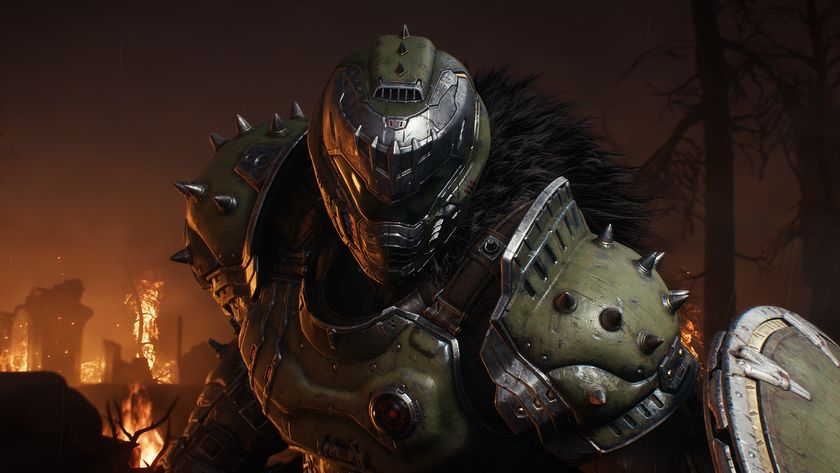Xbox Everywhere: Phil Spencer wants an Xbox app on as many devices as possible
The future of Xbox is about breaking down barriers to focus on player joy and ease of access

Something strange has happened to video game consoles over the last three years. The concepts of cloud streaming and cross-platform play have dissolved the whole idea of the standalone machine with a disc drive, its own online service, and exclusive titles. And while Sony has been somewhat slow to embrace the coming concept of the video game metaverse, Microsoft has embraced it. At E3 2021, the focus was on Game Pass and on the multi-platform possibilities of the Xbox app. Xbox isn't a console anymore, it's a platform.
Phil Spencer, head of Xbox, is acutely aware of the changes happening to the industry, both in terms of technology and culture. Games aren't what they used to be – and in some ways that has been accelerated by COVID-19. "One of the things I looked at early on in the pandemic was how many new friend connections got made on Xbox Live," he says. "It was literally tens of millions in the first month, and it just continued to grow."
"Some of that was just the network activity increasing as people played more games. But as an industry, we also saw things like Among Us, which had been out for a couple years, gain a lot of popularity. I think it was a reflection of the social capability that gaming has. Partly this is about generational change, but also, I think, through the pandemic – games are becoming a place for public dialogue, community and discussion. That raises the responsibility for us as an industry of what we should stand for."
Breaking down barriers

One of the key announcements of the Xbox E3 2021 showcase was the expansion of the Xbox app onto new platforms, including set-top boxes and smart TVs. For Spencer, this is about the way in which games are becoming accepted as mainstream digital entertainment, alongside social media and streaming services like Netflix. The old barriers to entry are coming down.
"I don't mean this in a negative way," he says, "but video games started as an enthusiast, almost hobbyist driven industry, and 'gamer' was a label that we wore. Now we have more than three billion people playing video games, and when nearly half the world does something, I don't know how you designate between a gamer or non-gamer." Spencer's ambition is to put Xbox games within reach of everyone on the planet, regardless of what tech they have – and that's going to require a re-think of what games and games consoles are.
"We should just all recognise that not everybody grew up with a controller in their hand," he says. "I don't envy movies, or TV, or books, but I think there is an accessibility that those media have. That is something that we should think about as an industry. Let's say I want to go play the next great console game. So I've got to go buy this console, I've got to go hook it up, I don't know how to use a controller – because I haven't done that before – so I'm gonna have to practice and learn. We think a lot about that accessibility point, and – not to bring it back to Game Pass – but some of that is financial, you know. These games are $70. That's a lot of money compared to these other artforms that we talk about."

"Now we have more than three billion people playing video games, and when nearly half the world does something, I don't know how you designate between a gamer or non-gamer"
Phil Spencer, Head of Xbox
So does this mean we're going to see a switch toward a predominately free-to-play model, as popularised by battle royale? "I think the diversity of business models in the game industry is a strength – and a creative strength, not just a business strength. If you have a great game, whether it's a single-player game with a beginning, middle and end; a game that has downloadable content to extend the chapters; a free-to-play game, an ad-driven game, I want all of those to be able to succeed. As an industry we have to embrace that diversity. We have to ensure we don't fall into thinking, okay, everything's got to be a battle royale free-to-play game now. A creator should use the business model that allows them to deliver the right experience for them. And as players, we have to be open to the fact that creative teams need to see the financial benefit of what they create, and that there isn't one business model to rule them all."
Sign up to the 12DOVE Newsletter
Weekly digests, tales from the communities you love, and more
Spencer also seems genuinely interested in the idea of user-generated content, of players making contributions to the games they enjoy. The creative options in Minecraft and Fortnite are the obvious examples, but the expanded challenge/circuit design mode promised in Forza Horizon 5 hints at a future where the ability to modify a game experience and then upload the new version to the cloud will become commonplace. This is, after all, something the youngest generation of players has been taught to expect through the way they use social media.
"TikTok is about finding what somebody else has done, whether it's a music track that they use, or some kind of funny meme, and then people remix that with their own content on top, and it becomes this almost self-perpetuating thing. I think we should see that in video games. I think we should try to open up those tools, and also retain value for everybody in the chain. We want creators to be able to monetize what they build, and see the value in that. And I don't think there should be any one genre that it's tied to."
Xbox wants to end the console war
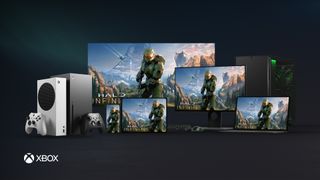
It's interesting that throughout our conversation, Spencer doesn't talk about competition with other consoles. Although he got a sly dig in about Sony's PlayStation strategy during E3, his focus is clearly on converting non-gamers into gamers rather than shifting the current user-base from one machine to another. When I ask, for example, about a lack of epic, self-contained single-player games on Xbox, he knows straight away what I'm referencing: Sony's recent success with titles such as Spider-Man and The Last of Us 2, and he's not having any of it.
"Our strategy is not to just go be like someone else," he says. "I get a push sometimes of 'where's your version of this or that [game]?'. I've been in this industry for a long time, I have a ton of respect for creators on all platforms, and I know many, many of them. But it's good if we're doing something different than what other platforms are doing. We're not in the business of just trying to create a green version of somebody else's blue or red coloured platform. That's not the example of creativity that I want to see in the games industry."
But what of these rumours that one of the platforms that Microsoft wants to put its Xbox app on is Nintendo Switch. "You know, evolution always takes time," he says. "There are different strengths that different companies have built through hard work, and some of these changes they might see as disruptive. And they'll have their own kind of business cadence and pace at which they want to make those changes."
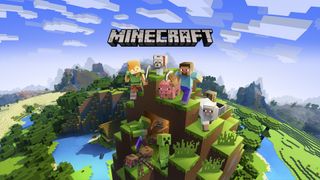
"We're not in the business of just trying to create a green version of somebody else's blue or red coloured platform"
Phil Spencer, Head of Xbox
"For us to succeed, I don't think another company has to get smaller. I want the industry to continue to grow and accelerate its growth, and if you buy a Switch, and you want to play Minecraft, and I happen to buy my kids a PlayStation… if they can't play together, that doesn't help gaming grow, in my mind. That war might help one device win over another device, but it doesn't help the industry. I believe focusing on player joy, ease of play, and accessibility, in the long run, is the right strategy. And I think the industry will move in that direction, because that's what gamers will demand."
So, the Xbox app on Switch then, I ask again. "You know, it's the right question because people usually ask me about releasing one individual game or another. And what I say is I want the full Xbox experience to be something that we deliver. We have no plans to bring it to any other kind of closed platforms right now, mainly because those closed platforms don't want something like Game Pass. There's a ton of open platforms out there for us to grow in: the web, PC, and mobile. So all of our focus, frankly, is on those platforms."
Later on he says that he totally understands why that's the case ("That's not a slam on anybody else who has a system that works for them. I can see why the disruption of Game Pass is not something that they want right now.") But the concept of Xbox existing on other consoles is not a total dead-end, at least not in Spencer's vision. "In the end," he says with a smile, "when we say we want everybody to be able to play on Xbox, we really mean if we can bring that full experience to a device that players want, we are totally open to those discussions."
Halo Infinite and Forza Horizon 5 are slated to launch on Xbox Series X, PC, and Game Pass later this year. In the meantime, why not check out the best Xbox Series X games to keep yourself busy.
Keith Stuart is an experienced journalist and editor. While Keith's byline can often be found here at 12DOVE, where he writes about video games and the business that surrounds them, you'll most often find his words on how gaming intersects with technology and digital culture over at The Guardian. He's also the author of best-selling and critically acclaimed books, such as 'A Boy Made of Blocks', 'Days of Wonder', and 'The Frequency of Us'.
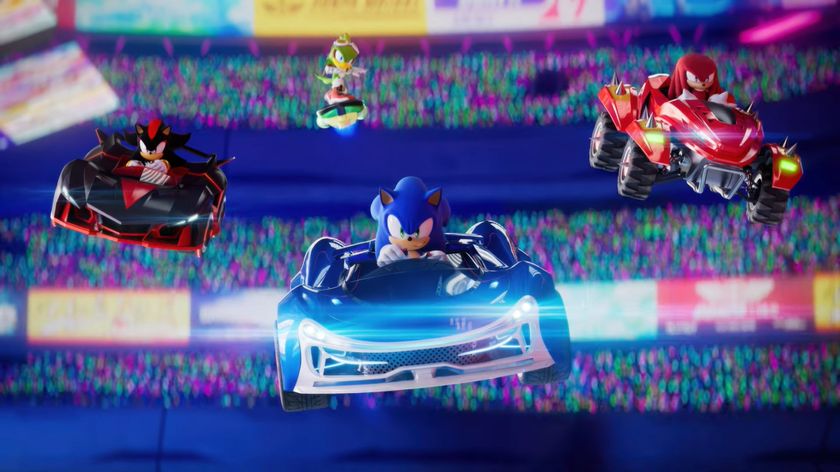
Sonic Racing CrossWorlds announcement trailer proves Sega is coming for Mario Kart 9's throne with transforming cars and a closed beta this month
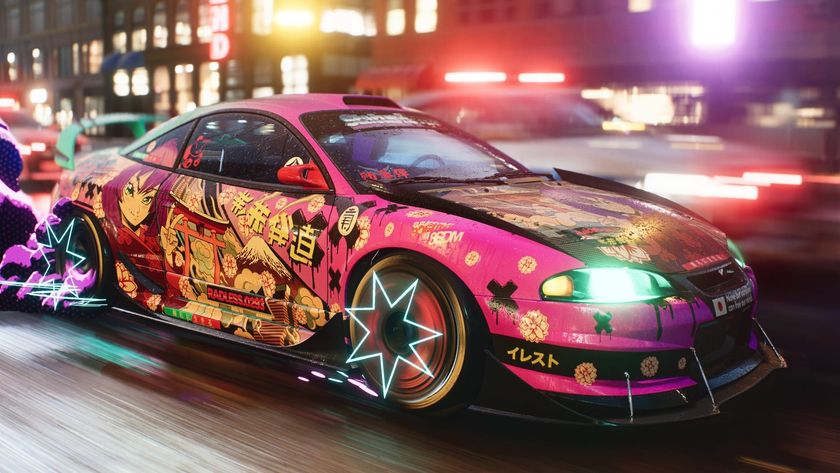
The Need For Speed series is pumping the brakes as "Criterion are joining their colleagues working on Battlefield" instead of tuning more cars
Most Popular





